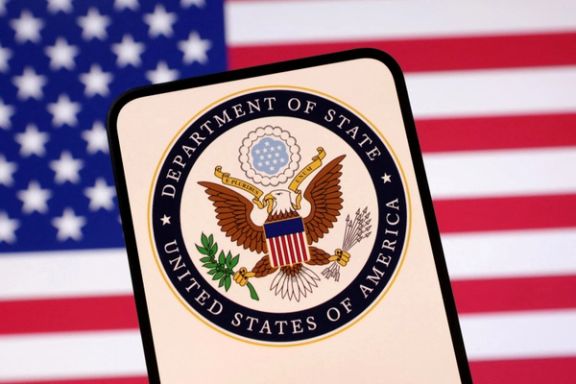US designates four Iran-backed militias as terrorist groups

The United States on Wednesday designated four Iran-aligned militias as foreign terrorist organizations, a statement by Secretary of State Marco Rubio said.

The United States on Wednesday designated four Iran-aligned militias as foreign terrorist organizations, a statement by Secretary of State Marco Rubio said.
The groups are Harakat al-Nujaba, Kataib Sayyid al-Shuhada, Harakat Ansar Allah al-Awfiya, and Kataib al-Imam Ali.
“These militias have conducted attacks on the US Embassy in Baghdad and on bases hosting US and coalition forces, typically using front names or proxy groups to obfuscate their involvement,” Rubio said in a statement. He said the designations support President Donald Trump’s directive to impose maximum pressure on Iran and cut off revenue to its regional proxies.
Sanctions target oil and crypto networks
The move followed fresh Treasury sanctions on Tuesday against four Iranian nationals and more than a dozen companies and individuals in Hong Kong and the United Arab Emirates, accused of moving funds for Iran’s military through oil sales and cryptocurrency.
“Iranian entities rely on shadow banking networks to evade sanctions and move millions through the international financial system,” Under Secretary for Terrorism and Financial Intelligence John Hurley said. “Under President Trump’s leadership, we will continue to disrupt these key financial streams that fund Iran’s weapons programs and malign activities in the Middle East and beyond.”
Treasury said the networks laundered hundreds of millions of dollars through front companies and digital assets to finance Iran’s ballistic missile and drone programs and to support allied groups including Hezbollah.
Separately, the State Department said it revoked a sanctions waiver for Afghanistan-related projects at Iran’s Chabahar Port, effective September 29. The exemption, in place since 2018, was meant to facilitate trade and reconstruction projects for Afghanistan but will now end, exposing operators and investors to penalties under the Iran Freedom and Counter-Proliferation Act.
Regional security deal with Iraq
The measures come as Iran has sought to expand its regional influence through new security understandings. Last month, Ali Larijani, Secretary of Iran’s Supreme National Security Council, said a new memorandum with Iraq was meant to “preserve stability” and prevent foreign powers from destabilizing the region.
The agreement commits both sides to prevent individuals or third countries from using one another’s territory to threaten security, Larijani said, linking it to lessons from the June war with Israel. Iraq later described the arrangement as a border protocol rather than a broader pact, while Washington warned it risked undermining Iraqi sovereignty.
Iran-backed groups have also been in the spotlight after the release of Israeli-Russian academic Elizabeth Tsurkov in Baghdad earlier this month.
Tasnim, an outlet linked to Iran’s Revolutionary Guards, reported her freedom came in a prisoner exchange for two members of the “resistance,” a term used in Tehran to refer to allied armed groups.
Tsurkov, a Princeton University student abducted in 2023, was believed to have been held by Kataib Hezbollah, one of the groups long accused of attacks on US and Israeli targets in Iraq. US President Donald Trump confirmed her release on Tuesday, saying she had been tortured during her captivity.